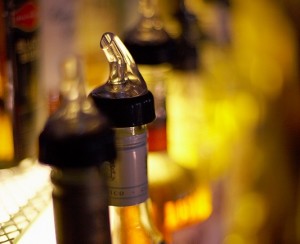
OCEAN CITY — A pair of bills circulating in the General Assembly seeking continual alcoholic beverages for off-premise consumption or delivery passed through their respective chambers this week.
When COVID-19 emerged around this time last year and Governor Larry Hogan declared a state-of-emergency, restaurants and bars were closed to the public and many went to a carryout and delivery model including modified ways of selling alcohol. The state and allied local liquor boards relaxed the rules for selling beer, wine and spirits through carryout or delivery and mixed drinks in sealed containers for off-site consumption.
While certainly not ideal, the relaxed rules sustained many businesses for several weeks, allowing them to generate some revenue and keep people employed. Although many of the key metrics have stabilized, a pair of bills have been introduced in the General Assembly allowing establishments to continue to sell alcoholic beverages for off-premise consumption or delivery permanently.
Senate Bill 205, introduced by Senator Sally Hetterman (D-Baltimore), was passed on third reading by the full Senate on a 46-1 vote on Monday. House Bill 12, introduced by a trio of western shore Delegates, also passed on third reading by the entire House with a 128-4 vote last week. Both bills have now crossed over to committees in the respective chambers for reconciliation before final passage.
According to language in the bills, a restaurant, bar or tavern that is licensed to sell alcoholic beverages for on-premise consumption is authorized to sell those same alcoholic beverages, including a mixed drink or closed container, for off-premise consumption or delivery if the alcoholic beverage is purchased along with prepared food other than pre-packaged snacks.
The purchaser must be at least 21 years of age and provide valid identification at the point of sale if the beverages are picked up, or off-site if the beverages are delivered. Alcoholic beverages sold for off-premise consumption or delivery must be in the manufacturer’s original sealed container, or if the beverages are mixed drinks or cocktails, must be served in a container sealed with a cap, cork or lid with no holes for straws or sipping. Off-premise alcohol sales would have to end by 11 p.m., according to language in the bill.
The bill authorizes a county to adopt a local law or ordinance that allows holders of certain classes of liquor licenses to sell alcoholic beverages off-premise under the described conditions with the approval of the local licensed beverage commissions. The licensed beverage commissions would be prohibited from charging an additional fee to the establishments for the privilege.
State Senator Mary Beth Carozza (R-38) was among the senators voting in favor of the legislation this week, calling the carryout provision a “lifeline” during these challenging times.
“Senate Bill 205 is an absolute top priority for the very survival and long-term recovery of our restaurants in each one of your districts,” she said. “I grew up in the restaurant business. Throughout the entire COVID-19 pandemic, I have been working with our local restaurants on their very survival and keeping jobs in those restaurants. This legislation is essential to our Maryland restaurants’ long-term COVID recovery.”
Maryland Comptroller Peter Francot first championed the idea late last summer.
“These are sensible reforms, I believe, to Maryland’s outdated alcohol statutes, and I believe these temporary changes should be made permanent,” he said. “It’s why I’ve asked Governor Hogan to allow these changes to remain in place through the 2021 legislative session, which would give the Maryland General Assembly an opportunity to memorialize these changes into law.”

